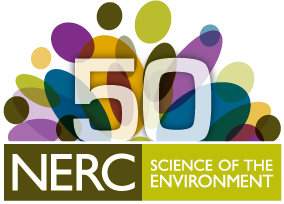
The European Commission Horizon 2020, under its Innovation in SMEs programme, will be seeking proposals for its SME instrument common call – phase one.
More information will become available in the third quarter of 2015. The following information, including which the topics addressed in this call, may be subject to change.
In phase one, funding is available for a feasibility study, in to verify the technological and practical, as well as economic, viability of an innovation idea or concept which has considerable novelty to the relevant industry sector.
Proposals can address the following topics:
•leadership in enabling and industrial technologies, including
H2020-SMEinst-81-2016-2017-ICT open disruptive innovation scheme,
H2020-SMEinst-82-2016-2017-NMBP accelerating the uptake of nanotechnologies advanced materials or advanced manufacturing and processing technologies by SMEs,
H2020-SMEinst-83-2016-2017-NMBP dedicated support to biotechnology SMEs closing the gap from lab to market,
H2020-SMEinst-84-2016-2017-BIOTEC SME boosting biotechnology-based industrial processes driving competitiveness and sustainability and
H2020-SMEinst-84-2016-2017-SME-SPACE engaging SMEs in space research and development;
•Health, demographic change and wellbeing, including
H2020-SMEinst-11-2016-2017-PHC clinical research for the validation of biomarkers or diagnostic medical devices;
•Food security, sustainable agriculture and forestry, marine and maritime and inland water research and the bioeconomy, including
H2020-SMEinst21-2016-2017-SFS resource-efficient eco-innovative food production and processing,
H2020-SMEinst-22-2016-2017- advancing innovations in integrated pest management – a role for SMEs,
H2020-SMEinst-23-2016-2017- creating added value from waste and by-products generated on farm and along the value-chain,
H2020-SMEinst-24-2016-2017-BE intelligent solutions and tools in forest production systems, fostering sustainable supply of quality wood for the growing bio-economy,
H2020-SMEinst-25-2016-2017-BG supporting SMEs efforts for the development- deployment and market replication of innovative solutions for blue growth;
•Secure, clean and efficient energy, including
H2020-SMEinst-31-2016-2017-SIE stimulating the innovation potential of SMEs for a low carbon and efficient energy system;
•Smart, green and integrated transport, including
H2020-SMEinst-41-2016-2017-IT small business innovation research for transport;
•Climate action, environment, resource efficiency and raw materials, including
H2020-SMEinst-51-2016-2017-SC5 achieving a resource-efficient and climate change resilient economy and a sustainable supply of raw materials;
•Europe in a changing world – inclusive, innovative and reflective societies, including
H2020-SMEinst-61-2016-2017-INSO innovative mobile e-government applications by SMEs,
H2020-SMEinst-62-2016-2017-INSO SME business model innovation;
•Secure societies – protecting freedom and security of Europe and its citizens, including
H2020-SMEinst-71-2016-2017-DRS protection of urban soft targets and urban critical infrastructure and
H2020-SMEinst-72-2016-2017 protection of urban soft targets and urban critical infrastructure.
Actions require at least one SME. Only applications from for-profit SMEs established in EU member states or countries associated to Horizon 2020 are eligible. All H2020 funding calls allow third country partners who secure their own funding to participate in consortia.
http://ec.europa.eu/research/participants/portal/desktop/en/funding/index.html
Closing date 02 Mar 16


![1586[1]](http://blogs.staffs.ac.uk/research/files/2015/07/15861.jpg)




![logo_en[1]](http://blogs.staffs.ac.uk/research/files/2013/11/logo_en1.gif)